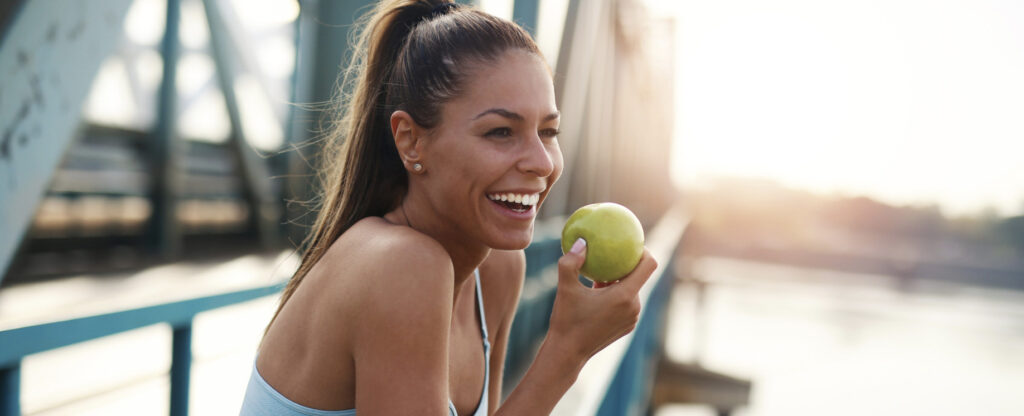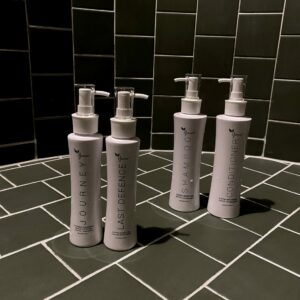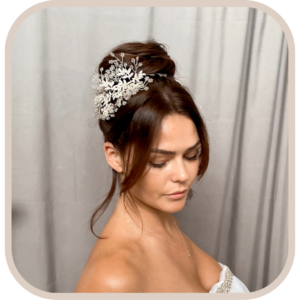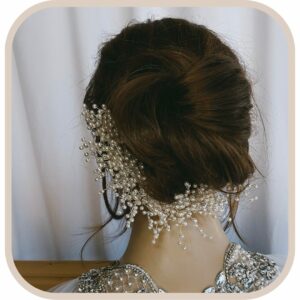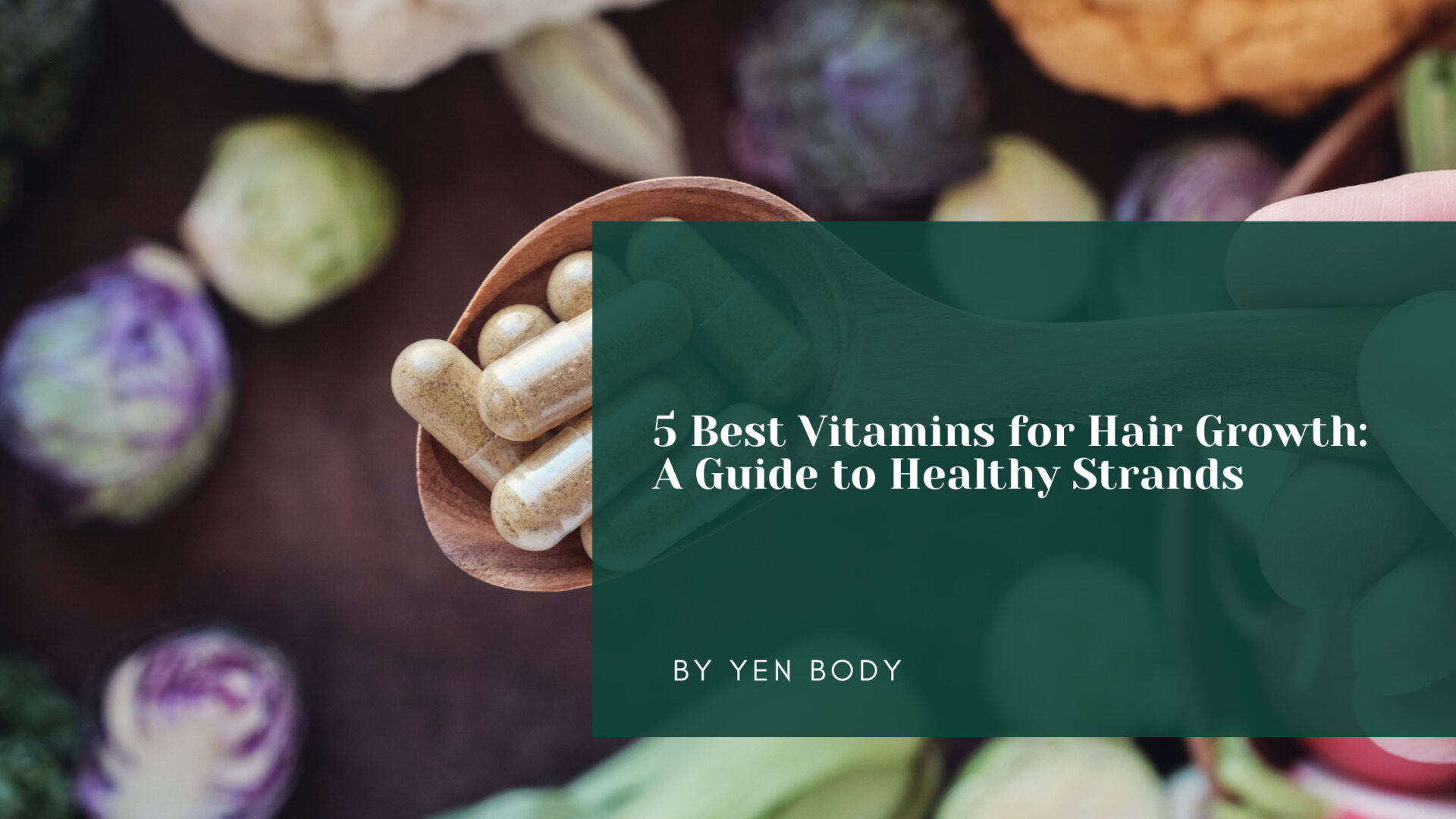If you’re looking for ways to boost hair growth, it might be time to take a closer look at your diet. Certain vitamins and minerals are essential for hair health, and a deficiency in any of these nutrients can lead to dry, brittle, and slow-growing hair. Hair growth is a complex process that depends on several factors, including genetics, age, hormonal changes, and nutrition. A balanced diet that includes a variety of nutrients is essential for maintaining healthy hair. Certain vitamins and minerals are particularly important for hair growth, as they play a crucial role in supporting the hair follicles’ function and structure.
Your diet affects your hair growth and overall health of your hair because the nutrients you consume provide the building blocks for healthy hair growth. The hair follicles, which are the tiny organs that produce hair, require a range of nutrients to function properly and produce strong, healthy hair.
For example, proteins are essential for hair growth, as they are the primary building blocks of hair. Without enough protein in your diet, your hair may become weak and brittle, leading to breakage and hair loss. Similarly, vitamins and minerals like biotin, vitamin C, vitamin D, iron, and zinc are all important for healthy hair growth, as they support hair follicle development, promote hair strength and elasticity, and help protect hair from damage.
On the other hand, a diet that is deficient in key nutrients can lead to hair thinning, hair loss, and other hair problems. For example, a lack of iron can cause anemia, which can lead to hair loss, while a deficiency in biotin can cause hair to become dry and brittle. In addition, a diet high in processed foods and unhealthy fats can lead to inflammation and oxidative stress, which can damage hair follicles and impede healthy hair growth.
To help you maintain a healthy mane, here are the five best vitamins for hair growth that you should be adding to your diet:
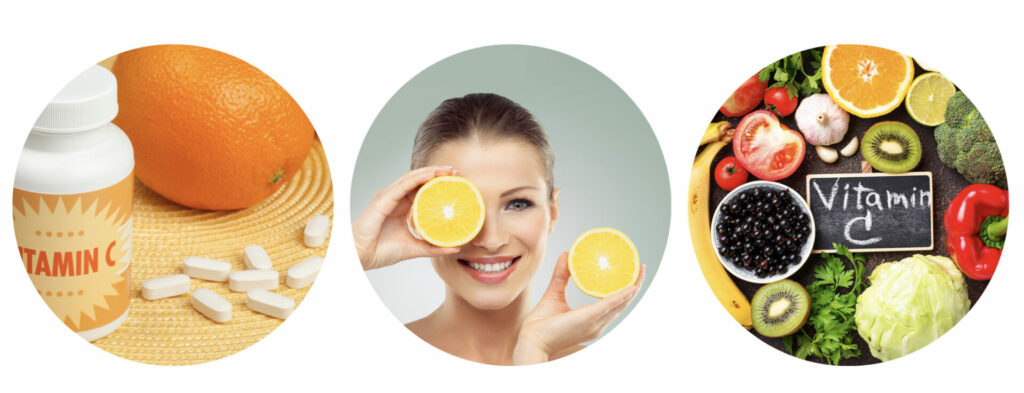
- Vitamin C: This powerful antioxidant helps produce collagen, which is essential for hair growth and maintenance. It also helps improve iron absorption, which is vital for healthy hair.
- Eat vitamin C-rich foods: The best way to get vitamin C is by eating foods that are naturally rich in this nutrient. Some of the best sources of vitamin C include citrus fruits (such as oranges, grapefruits, and lemons), berries (such as strawberries, raspberries, and blueberries), kiwi fruit, mango, pineapple, papaya, cantaloupe, and guava. Vegetables such as bell peppers, broccoli, Brussels sprouts, cauliflower, spinach, and kale are also good sources of vitamin C.
- Take a vitamin C supplement: If you’re unable to get enough vitamin C from your diet, you may want to consider taking a vitamin C supplement. Vitamin C supplements are widely available in various forms, including tablets, capsules, chewables, powders, and liquids. It’s important to talk to your healthcare provider before starting any new supplement regimen to ensure it’s safe and appropriate for you.
- Drink vitamin C-rich beverages: Freshly squeezed fruit juices, smoothies, and herbal teas can be an excellent way to increase your vitamin C intake.
- Cook with vitamin C-rich ingredients: Cooking can sometimes cause vitamin C to break down, but certain cooking methods can help preserve its content. For example, steaming vegetables or lightly stir-frying them can help retain vitamin C. Avoid overcooking or boiling vegetables for too long as it can lead to nutrient loss.
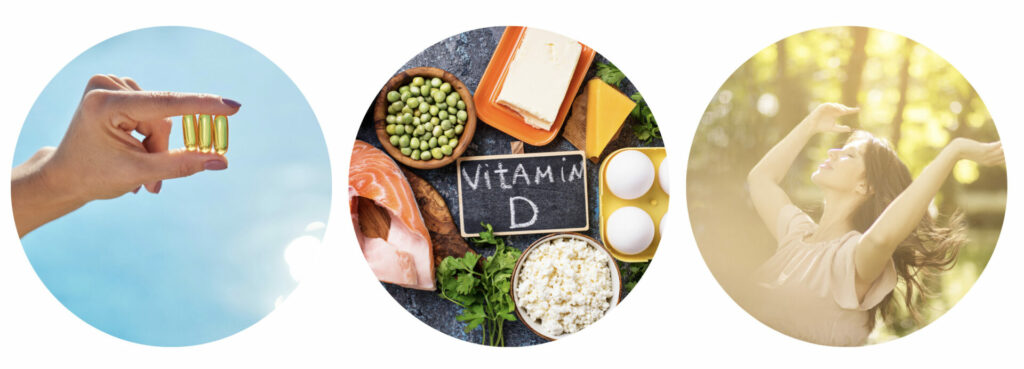
2. Vitamin D: Vitamin D is often referred to as the “sunshine vitamin” because our bodies produce it when we’re exposed to sunlight. It’s essential for hair growth, as well as overall health, and many people are deficient in this vitamin.
- Get enough sunlight: Sun exposure is the most natural way to increase vitamin D uptake. When the skin is exposed to sunlight, it produces vitamin D3. The amount of sun exposure needed varies based on several factors, such as skin colour, geographic location, and time of day. However, it’s important to practice safe sun exposure and avoid getting sunburned or prolonged exposure during peak UV hours.
- Eat vitamin D-rich foods: Some foods naturally contain vitamin D, such as fatty fish (such as salmon, tuna, and mackerel), egg yolks, and cheese. Some foods, like orange juice, breakfast cereals, and dairy products, are often fortified with vitamin D.
- Take a vitamin D supplement: If you’re unable to get enough vitamin D from sunlight and food sources, you may want to consider taking a vitamin D supplement. Vitamin D supplements are available in various forms, including tablets, capsules, and liquids. Talk to your healthcare provider to determine if supplementation is necessary and appropriate for you.

3. Biotin: Biotin, also known as Vitamin H, is a B-complex vitamin that helps produce keratin, a protein that makes up the structure of our hair, skin, and nails.
- Eat biotin-rich foods: Biotin is found naturally in a variety of foods, including egg yolks, liver, nuts (such as almonds, peanuts, and walnuts), seeds (such as chia and sunflower seeds), salmon, sweet potatoes, spinach, broccoli, and whole grains.
- Take a biotin supplement: Biotin supplements are widely available in various forms, including tablets, capsules, and gummies. It’s important to talk to your healthcare provider before starting any new supplement regimen to ensure it’s safe and appropriate for you.
- Consider biotin-fortified products: Some products, such as cereals, bread, and nut butter, are fortified with biotin. Check the food labels to see if they contain added biotin.
- Use hair and skin care products with biotin: Some hair and skin care products contain biotin to help strengthen and promote healthy hair and skin.
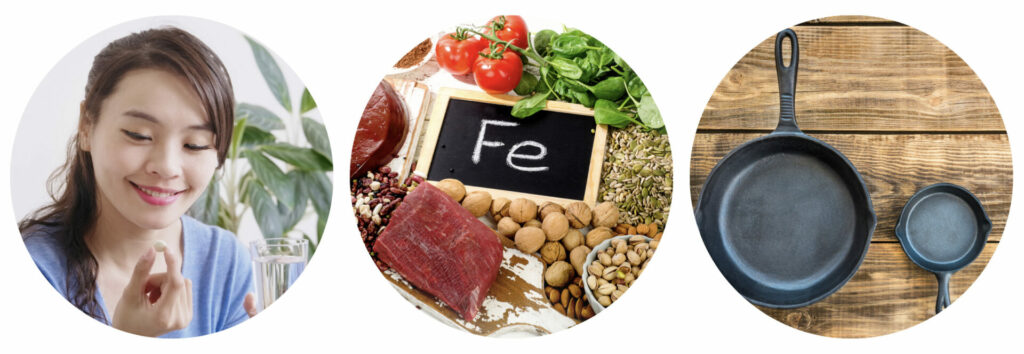
4. Iron: Iron is crucial for maintaining healthy hair. It helps carry oxygen to the hair follicles, which is essential for growth and overall health.
- Eat iron-rich foods: Iron can be found in many foods, including red meat, poultry, fish, beans, lentils, tofu, spinach, broccoli, fortified breakfast cereals, and enriched grains.
- Combine iron-rich foods with vitamin C: Vitamin C can enhance the absorption of iron. Consuming foods rich in vitamin C, such as oranges, strawberries, kiwi, bell peppers, and tomatoes, can help your body absorb more iron from plant-based sources.
- Cook in cast-iron cookware: Cooking acidic foods like tomato sauce or chilli in a cast-iron skillet or pot can increase the iron content of the food.
- Consider iron supplements: If you’re not getting enough iron from your diet, you may need to take an iron supplement. However, it’s important to talk to your healthcare provider before starting any new supplement regimen, as too much iron can be harmful.
- Avoid consuming foods that inhibit iron absorption: Certain foods, such as tea, coffee, and dairy products, can inhibit the absorption of iron. It’s best to avoid consuming these foods with iron-rich meals.
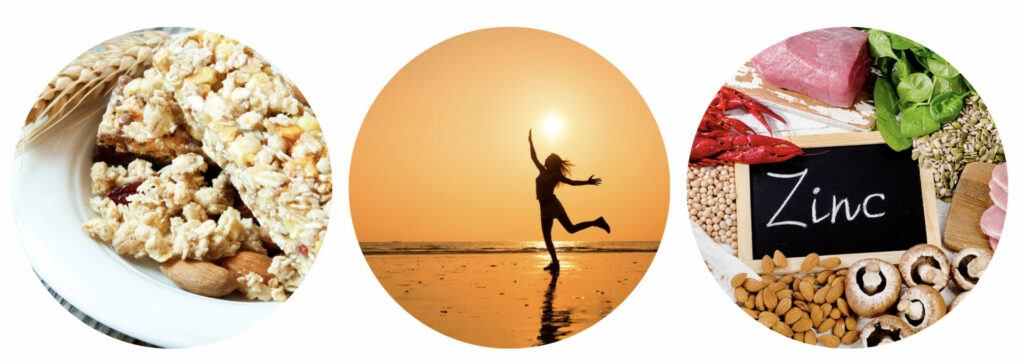
5. Zinc: Zinc is important for maintaining healthy hair because it helps regulate hormone levels, which can impact hair growth.
- Eat zinc-rich foods: Zinc can be found in a variety of foods, including oysters, beef, pork, chicken, beans, nuts (such as cashews and almonds), whole grains, and fortified breakfast cereals.
- Consider zinc supplements: If you’re not getting enough zinc from your diet, you may need to take a zinc supplement. However, it’s important to talk to your healthcare provider before starting any new supplement regimen, as too much zinc can be harmful.
- Use zinc-fortified products: Some products, such as breakfast cereals and energy bars, are fortified with zinc. Check the food labels to see if they contain added zinc.
- Avoid consuming foods that inhibit zinc absorption: Certain foods, such as whole grains and legumes, contain compounds that can inhibit the absorption of zinc. It’s best to consume these foods in moderation and to combine them with other foods that enhance zinc absorption, such as animal-based proteins and vitamin C-rich foods.
Incorporating these vitamins into your diet is a great start to improving the health of your hair, but for an extra boost, consider using a leave-in moisturiser like Last Defence from Yen Body. This lightweight formula is infused with Vitamin B and prickly pear, and it helps protect hair from damage and promotes healthy growth.
In addition to incorporating these vitamins into your diet, maintaining a healthy and balanced lifestyle can also help to promote healthy hair growth. This includes getting regular exercise, managing stress levels, getting enough sleep, and avoiding damaging hair practices such as excessive heat styling, chemical treatments, and tight hairstyles.
Overall, by incorporating these vitamins into your diet and maintaining a healthy lifestyle, you can help to promote strong, healthy, and faster-growing hair. However, it’s important to remember that hair growth is a gradual process and results may take time to show. Additionally, it’s important to talk to your healthcare provider before making any major changes to your diet or supplement regimen.
